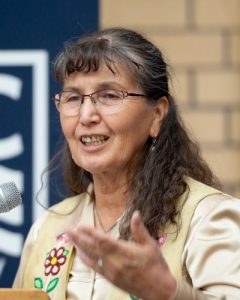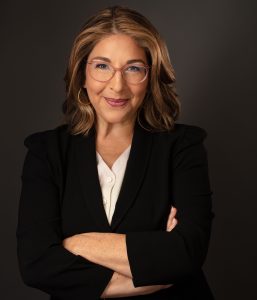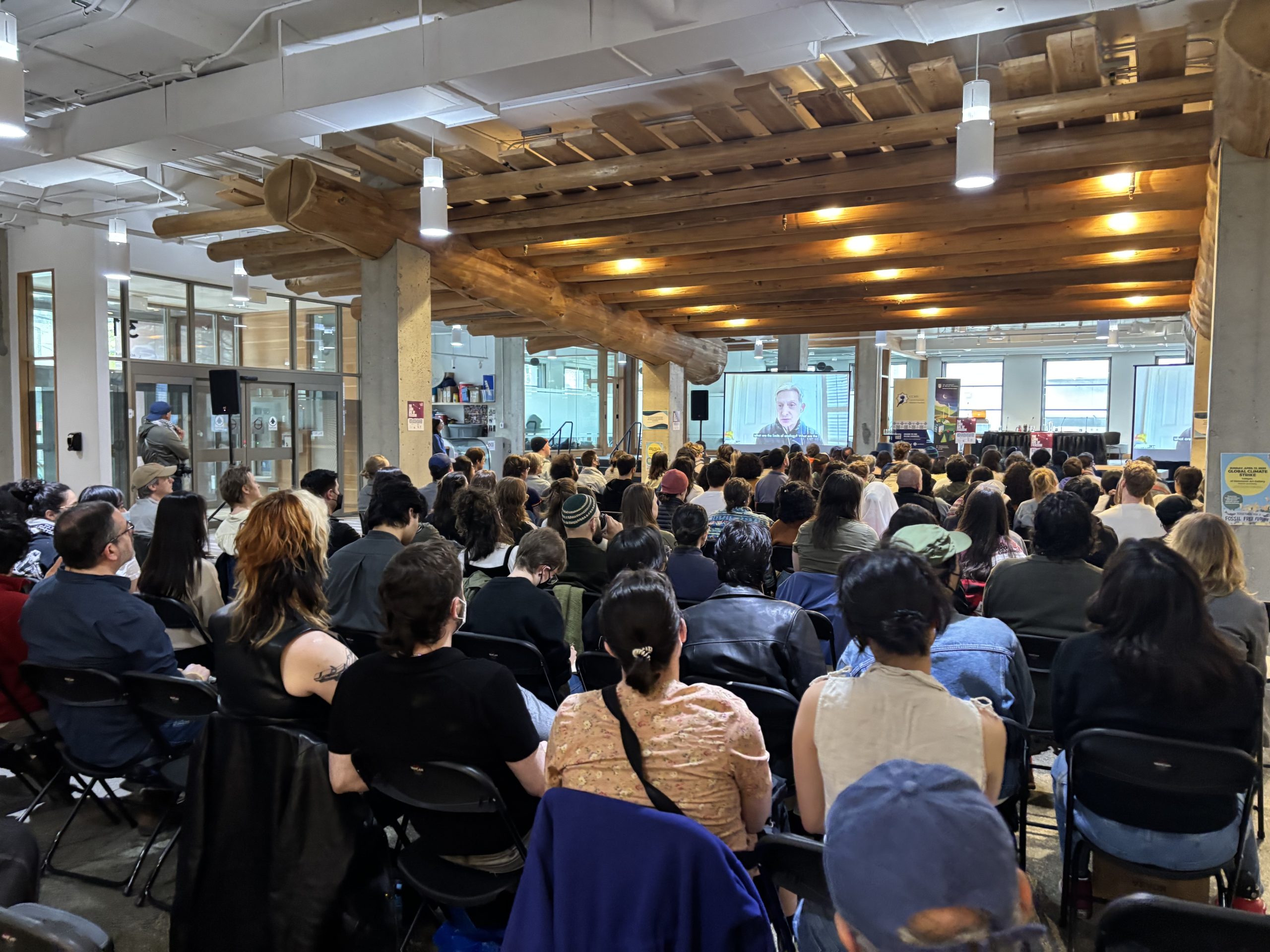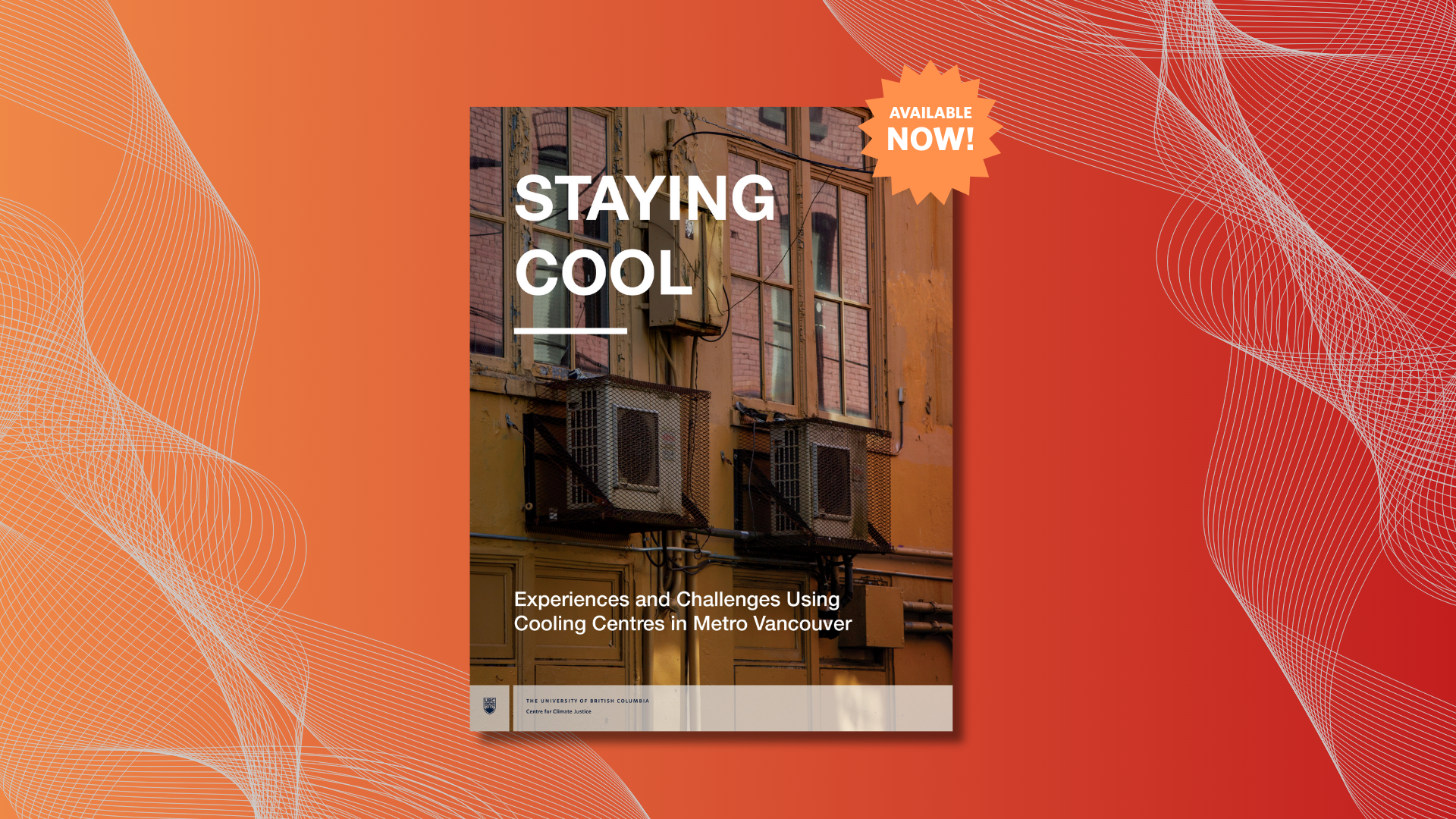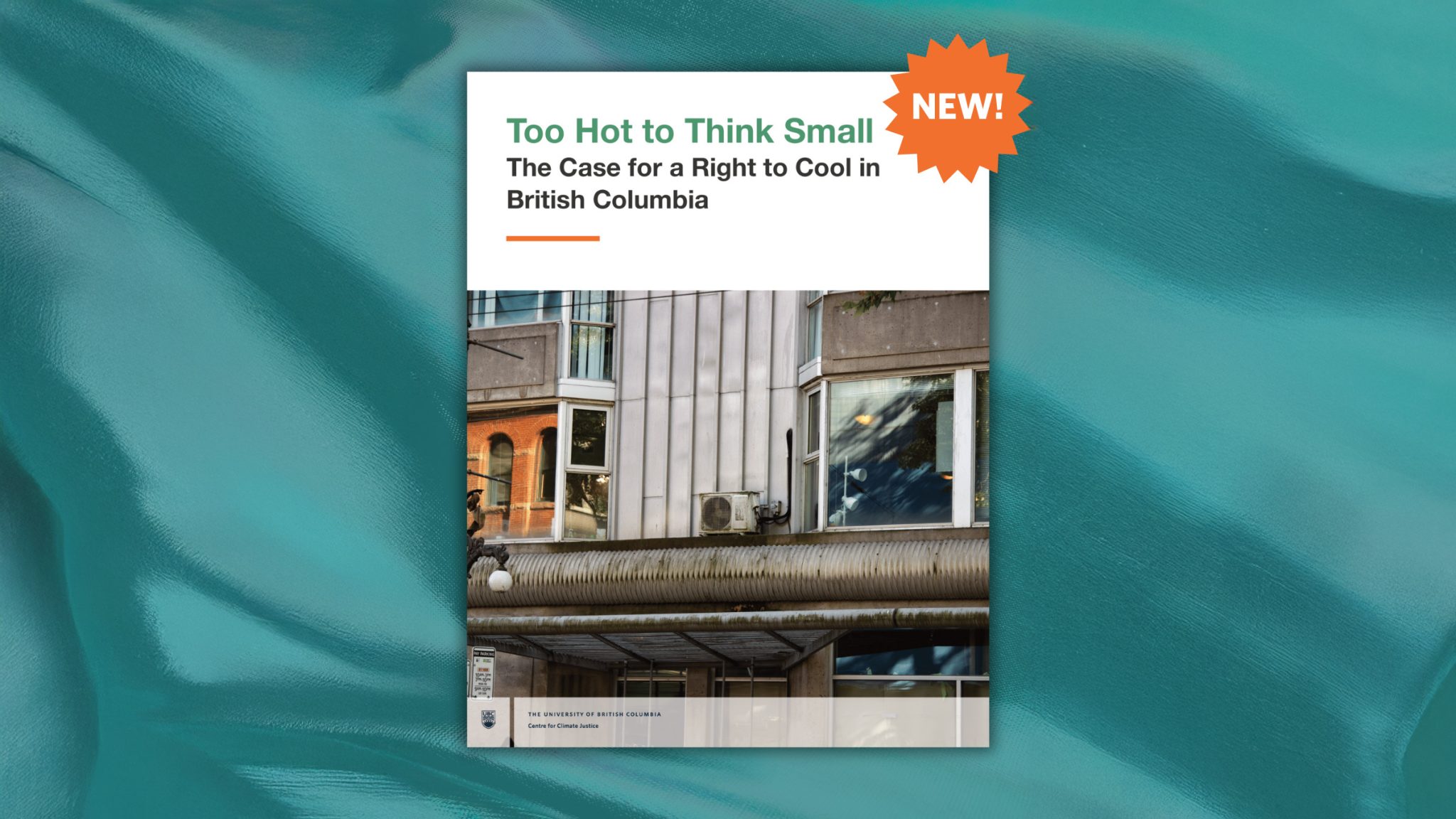Setting the Stage
Climate justice seeks to address how climate crises disproportionately impact communities and people already experiencing injustices rooted in colonialism, capitalism and intersecting structures of power. Although communities on the frontlines of climate injustices have intimate experiences and understandings of climate crises, their expertise and knowledge are often not reflected in climate-related research, policy, resource allocations, or decision-making.
Syilx Okanagan Nation, whose traditional and unceded territories span northward towards Mica Creek or what is today known as Revelstoke, BC, eastward between Kootenay Lakes and Kaslo, westward into the Nicola Valley, and southward beyond the US-Canada border near to Wilbur, Washington, USA (syilx Okanagan Nation, nd), have always responded to changes on the land and water. Despite syilx laws existing to govern relations to and with local territories, including responding to changes on the land and water, self-determined syilx knowledges and laws are not reflecting when addressing climate injustice.
On November 3, 2023, Dr. Jeannette Armstrong and Professor Naomi Klein came together on UBC Okanagan’s campus for the Department of Community, Culture, and Global Studies Annual Speaker event and in collaboration with UBC’s Centre for Climate Justice to discuss what syilx-led climate justice would mean from a local to global perspective.
c̓əskʕanaʔ, Elder David Michelle, began by providing a traditional welcome to syilx territories for those in attendance. A syilx Elder and knowledge holder from Westbank First Nation, c̓əskʕanaʔ is a fluent nsyilxcən speaker, mentor in the Bachlor of nsyilxcən Language Fluency program, and member of the First Peoples’ Cultural Council of BC. Dr. Jeannette Armstrong (UBCO) and Professor Naomi Klein (UBCV) then took the stage and were facilitated through conversation by Onyx Sloan Morgan (UBCO).
Preamble from Naomi Klein
It was a profound honour to share the stage Dr. Jeannette Armstrong at this very special event. The love and respect for her was palpable in the room, with many of Dr. Armstrong’s past and current students joining us. We all listened with deep attention.
Syilx territory, including the UBCO campus on which we gathered, has been battered by climate-related disasters in recent years, including historic floods, drought, and devastating fires. Dr. Armstrong’s words help us understand these events not merely as data but also as cultural desecrations and deeply felt absences; as starving grizzly bears and abandoned fire-struck communities. She also reminded us that the changing of climate on these lands began long ago, with toxic mining tailings and clearcut logging, intimately linked to colonialism violations of land rights.
Dr. Armstrong is very clear that because colonial logics produced these injustices, Indigenous knowledge and leadership must shape policy responses to the climate crisis at every level. UBC’s Centre for Climate Justice sees this as both a challenge and as a guiding light for what our work must be. We consider ourselves very fortunate to have such a consequential leader as a colleague at our university. Below and with her permission, we share Dr. Armstrong’s response to Dr. Sloan Morgan’s question: What does climate justice mean and look like on unceded Syilx territories?
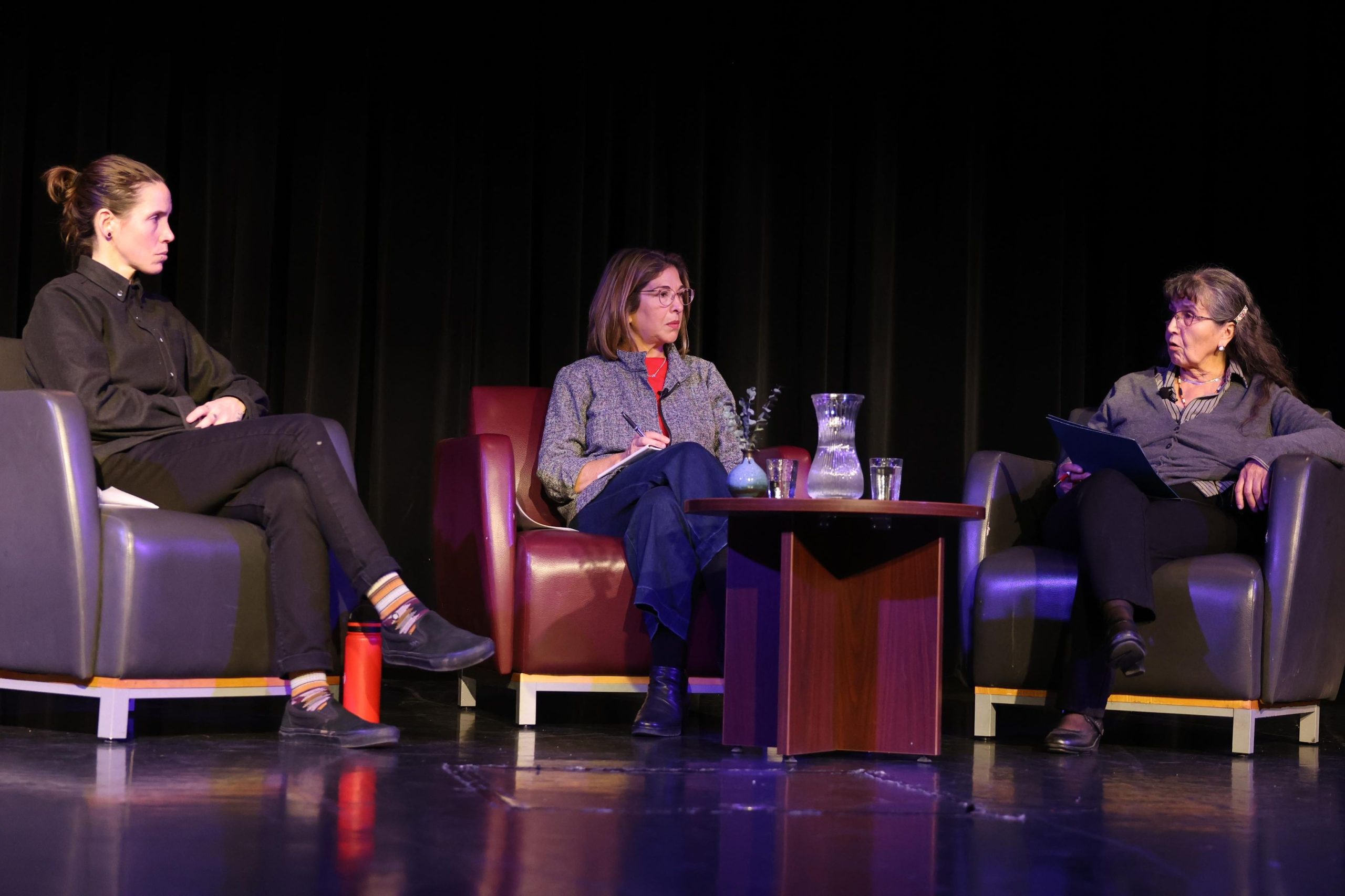

From left to right: Onyx Sloan Morgan (moderator), Naomi Klein, Jeannette Armstrong
Inclusion and Equity: Climate Justice from a Syilx Perspective
Jeannette Armstrong, OC, PhD.
I want to start with the words of the United Nations (UN) Secretary-General António Guterres, who has referred to humanity’s “war on nature” as “senseless and suicidal” (p. 4).
I also want to start by quoting Eriel Tchekwie Deranger, the Executive Director of Indigenous Climate Action,when she stated that “the climate crisis cannot be addressed in any meaningful way without addressing its root causes – capitalism, colonialism and extractivism” (Deranger, 2021, np).
These root causes, in my view, are inextricably tied to the climate injustices the world is experiencing, and which are the symptoms of the ongoing expansion of dispossession, violence and violations of Indigenous and human rights.
So how do I understand climate injustice as a syilx person? What is it in the syilx experience?
Climate injustice didn’t just start. Our experience is that it started many years ago although it is now just becoming clear to others who have been protected from its effects until fires, floods and severe weather began to wreck-havoc – taking homes and lives, and affecting ‘business as usual.’
The ‘business as usual’ in the clear cutting of forests here, on syilx territory, started years ago. We witnessed its effects in the declines and extirpations of our wildlife and its consequences in accessing our major harvested foods sources. We have felt deeply the ongoing drying up and dying of once lush and abundant forested habitats. I have seen my hunter brother’s tears when staring out at barren stump lands in the highlands, that had changed from one year to the next. I have felt it when I went to the bushes I once picked with my mother and my grandmother, and they were piled up and burning.
There have been huge changes to our water systems that started years ago, in the damming, the diversions and the artificializing of flows to our rivers, in the drying up of wetlands and small streams, and the changes to lake levels. The disappearance of our sockeye and spring salmon, and the toxicity of our kikinee salmon in our lakes, left us for years with having to get salmon from our nlakapa’mux and secwepmc neighbouring peoples until our Chiefs led the impossible work of putting the salmon and the river back.
Rampant urban growth and agricultural practices requiring constant water extractions, pollutions and displacements add to the terrible effects of leisure cities springing up in vulnerable and important headwater areas.
All of these occurrences are local factors adding to the causes of long-term climate change. The destructions locally felt are part of the cumulative causes of effects on all of our lands and waters – seen in the deepest harms in the rampant destruction of biodiversity here in our Okanagan territory.
For us, as syilx people, these injustices and their effects on us have been ongoing and are now getting worse much more rapidly than ever before. The losses suffered in our communities: of homes to fires, of livelihoods that depend on our lands and waters, have severe impacts to our already vulnerable peoples traumatized by what the past has already dished out through the unjust taking of our lands without consent and obstructing our access to our food sovereignty. How can reconciliation even begin if there is no will to understand why a critical shift in practices related to local protections and restorations to lands and waters must include and be led by local Indigenous peoples?
We as syilx people hold our actions responsible to and for future generations, in their rights to have health, to have access to their foods, their medicines and their relationships with our tmixʷ – in their living places, with clean waters and green forests.
These are rights we hold sacred for ourselves, our future generations and for all our tmixʷ relatives that have given their lives for us to be here for the thousands of years that we have been here. These rights must be recognized in government-formulated policies and legal processes related to climate actions.
The need to reflect Indigenous rights and perspectives was recognized internationally in 2017 at the COP23 climate conference, in a document released by Indigenous groups titled Rights of Nature: Rights-Based Law for Systemic Change. The paper states that “we must stop treating the Earth as a commodity” (p. 3), and added that: “Recognizing rights of nature means that human activities and development must not interfere with the ability of ecosystems to absorb their impacts, to regenerate their natural capacities, to thrive and evolve, and requires that those responsible for destruction, including corporate actors and governments be held fully accountable.” (p. 21)
It is the last statement in Rights of Nature that I am interested in advocating for in actions. Going back to Eriel Tchekwie Deranger’s words, the root causes of capitalism, colonialism and extractivism must be addressed. How can we act together to hold governments and corporate actors accountable when the actions need to come from within the comfortable and protected lives that these entities are expected to deliver? I realize and understand the full scale of climate injustices worldwide and as a syilx person, I feel the overwhelming vulnerability of the poorest and least powerful in answering that question.
But I also feel the anger that so many feel driving them to actions to try to stop further chaos. All of you are in here listening to my words because of that feeling at some level. This we know: governments are not accountable unless we collectively make them accountable, and only then will corporate actors be held fully accountable to do things differently.
The breaking of our syilx laws here, on our unceded lands, creating ongoing destruction and obstruction to its recovery needs you to stand as allies with us to find solutions together. Our experiences have equipped us with knowledge and skill on making solutions to navigate catastrophic environmental changes here in our rivers and within our limited capacities on our lands. All is not perfect in our own colonized band government processes as we try to address the severe trauma and poverties that are an everyday reality. But in every one of our flawed systems as syilx people when empowered with resources and decision-making, our choices are for protecting, recovering and revitalizing our lands for future generations.
We perhaps all know that what is required is a profoundly different ethic to attend to the full scale of climate justice to diagnose, assess and problem-solve climate change opportunities. Such approaches already exist in the lives, experiences and knowledge of our peoples who have been seeing these changes and dealing with themfor a long time.
Climate Justice demands that frontline communities most vulnerable to the effects of climate change be fully engaged in solution making however difficult that shift be in policy and action making.
We will be seeing more frequent climate related disasters and with it, increasing social inequalities and debilitating social justice issues related to shelter, food and livelihoods. We will continue to see lives being lost by our animal relatives out there, with ours and their homes being destroyed, our food crops failing, and our simple livelihoods being jeopardized, as our cultural heritage is wiped out alongside the destruction of our environment.
Climate justice involves difficult moral questions related to the inequalities right here in our lands. It is not enough to stand by and wait for someone to do something. We can act together.
Solutions in reducing harms that stem from climate injustice have to include our syilx governments with their natural resource expertise guided by their traditional knowledge keepers. They have to be represented and included in solutions-making at all levels of government. As difficult of a shift as that seems to be, there are small inroads being made but resistance is strong. How shall we, in this UBC Okanagan institution, help to make this change happen? We can act together.
Solutions in sharing the burden of climate injustice effects must find ways to actualize syilx led climate justice actions. This sounds easy but it is not as it must occur in every way that colonial laws have been constructed around us. Changing those laws would radically alter how resources are distributed in both harm reduction and in sharing the burden of its effects.
We here, with whatever power we may have, need to promote and undertake urgent actions needed in community-led solutions by advancing the theories and practice of environmental justice by engaging Indigenous knowledge and laws.
Climate change exacerbates the difficulties we as syilx already face, including political and economic marginalization, loss of land and resources, human rights violations, discrimination and unemployment. We syilx along with other Indigenous peoples face being subjected to police violence, we face constant threats of land being taken for development, and not receiving justice in the courts to protect lands and waters. We can act on these things together.
I say this. We are the best protectors of our syilx lands, waters and timixʷ, and we need everyone who lives here on our territory to feel and act that way.
